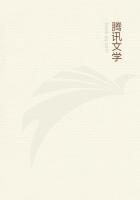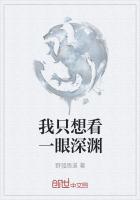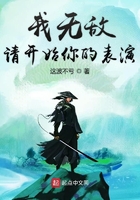They were now looking for that chief, and the journal says:--"About two o'clock we collected our horses and set out, accompanied by Weahkoonut, with ten or twelve men and a man who said he was the brother of Twisted-hair. At four miles we came to a single house of three families, but could not procure provisions of any kind; and five miles further we halted for the night near another house, built like the rest, of sticks, mats, and dried hay, and containing six families.
It was now so difficult to procure anything to eat that our chief dependence was on the horse which we received yesterday for medicine; but to our great disappointment he broke the rope by which be was confined, made his escape, and left us supperless in the rain."
Next day they met an Indian who brought them two canisters of powder, which they at once knew to be some of that which they had buried last autumn.
The Indian said that his dog had dug it up in the meadow by the river, and he had restored it to its rightful owners. As a reward for his honesty, the captains gave him a flint and steel for striking fire; and they regretted that their own poverty prevented them from being more liberal to the man.
They observed that the Rocky Mountains, now in full sight, were still covered with snow, and the prospect of crossing them was not very rosy. Their Chopunnish guide told them that it would be impossible to cross the mountains before the next full moon, which would be about the first of June. The journal adds:
"To us, who are desirous of reaching the plains of the Missouri--if for no other reason, for the purpose of enjoying a good meal--this intelligence was by no means welcome, and gave no relish to the remainder of the horse killed at Colter's Creek, which formed our supper, as part of which had already been our dinner."
Next day, accordingly, the hunters turned out early in the morning, and before noon returned with four deer and a duck, which, with the remains of horse-beef on hand, gave them a much more plentiful stock of provisions than had lately fallen to their lot.
During the previous winter, they were told, the Indians suffered very much for lack of food, game of all sorts being scarce.
They were forced to boil and eat the moss growing on the trees, and they cut down the pine-trees for the sake of the small nut to be found in the pine-cones. Here they were met by an old friend, Neeshnepahkeeook and the Shoshonee, who had acted as interpreter for them. The journal says:--"We gave Neeshnepahkeeook and his people some of our game and horse-beef, besides the entrails of the deer, and four fawns which we found inside of two of them. They did not eat any of them perfectly raw, but the entrails had very little cooking; the fawns were boiled whole, and the hide, hair, and entrails all consumed. The Shoshonee was offended at not having as much venison as he wished, and refused to interpret; but as we took no notice of him, he became very officious in the course of a few hours, and made many efforts to reinstate himself in our favor.
The brother of Twisted-hair, and Neeshnepahkeeook, now drew a sketch, which we preserved, of all the waters west of the Rocky Mountains."
They now met Twisted-hair, in whose care they had left their horses and saddles the previous fall, and this was the result of their inquiries:--"Between three and four o'clock in the afternoon we set out, in company with Neeshuepahkeeook and other Indians, the brother of Twisted-hair having left us. Our route was up a high steep hill to a level plain with little wood, through which we passed in a direction parallel to the [Kooskooskee] River for four miles, when we met Twisted-hair and six of his people.
To this chief we had confided our horses and a part of our saddles last autumn, and we therefore formed very unfavorable conjectures on finding that he received us with great coldness.
Shortly afterward he began to speak in a very loud, angry manner, and was answered by Neeshnepahkeeook. We now discovered that a violent quarrel had arisen between these chiefs, on the subject, as we afterward understood, of our horses.
But as we could not learn the cause, and were desirous of terminating the dispute, we interposed, and told them we should go on to the first water and camp. We therefore set out, followed by all the Indians, and having reached, at two miles' distance, a small stream running to the right, we camped with the two chiefs and their little bands, forming separate camps at a distance from each other.
They all appeared to be in an ill humor; and as we had already heard reports that the Indians had discovered and carried off our saddles, and that the horses were very much scattered, we began to be uneasy, lest there should be too much foundation for the report.
We were therefore anxious to reconcile the two chiefs as soon as possible, and desired the Shoshonee to interpret for us while we attempted a mediation, but be peremptorily refused to speak a word.
He observed that it was a quarrel between the two chiefs, and he had therefore no right to interfere; nor could all our representations, that by merely repeating what we said he could not possibly be considered as meddling between the chiefs, induce him to take any part in it.
"Soon afterward Drewyer returned from hunting, and was sent to invite Twisted-hair to come and smoke with us. He accepted the invitation, and as we were smoking the pipe over our fire he informed us that according to his promise on leaving us at the falls of the Columbia, he had collected our horses and taken charge of them as soon as he reached home.















